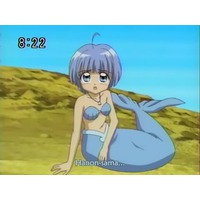

Would Taiwan prefer the dignity of something closer to diplomatic relations? Of course it would. There are some limitations on the conduct of relations, but many of these have been relaxed over time and can probably-but quietly-be relaxed further. president, but through the years numerous channels have been created to facilitate communications between the two on political, security, economic, cultural, and people-to-people issues. The mechanism isn’t the equivalent of diplomatic relations: Taiwan’s president has not had face-to-face meetings with the U.S. The United States does a lot with and for Taiwan, and as long as we do it behind the facade of unofficial relations, China does not complain. Its personnel are government personnel, and the business it conducts is government business. In fact, AIT is a wholly owned subsidiary of the U.S. But the Carter administration and Congress created a mechanism to preserve the substance of our relations with Taiwan by working through a nominally unofficial organization, the American Institute in Taiwan (AIT point of transparency: I was a senior officer of AIT from 1997 to 2002). Third, because we gave up any hope of a Two-China policy, one consequence of recognizing the PRC was that we could no longer have diplomatic relations with the ROC (no country in the world has diplomatic relations with both). In a 1982 communique with China, the Reagan administration formalized this position by saying that the United States does not pursue a policy of two Chinas, or one China-one Taiwan. So, in 1972 the Nixon administration began a process to transfer recognition and diplomatic relations from the ROC (Taiwan) to the PRC, and the Carter administration completed that process in 1979 in return for statements of China’s “fundamental policy” to pursue reunification by peaceful means. We would have been perfectly happy to have diplomatic relations with both, but they insisted that we had to choose sides. The government of the People’s Republic of China (PRC) in Beijing and the government of the Republic of China in Taiwan (ROC) each insisted during the Cold War that it was the sole, legal government of China.

Second, the core of the United States’ One-China policy is that we don’t pursue a Two-China policy. And it dates back decades, to before our establishment of relations with the People’s Republic of China. Thornton China Centerįirst, the One-China policy is something the United States adopted and has upheld for itself.

Nonresident Senior Fellow - Foreign Policy, Center for East Asia Policy Studies, John L.


 0 kommentar(er)
0 kommentar(er)
